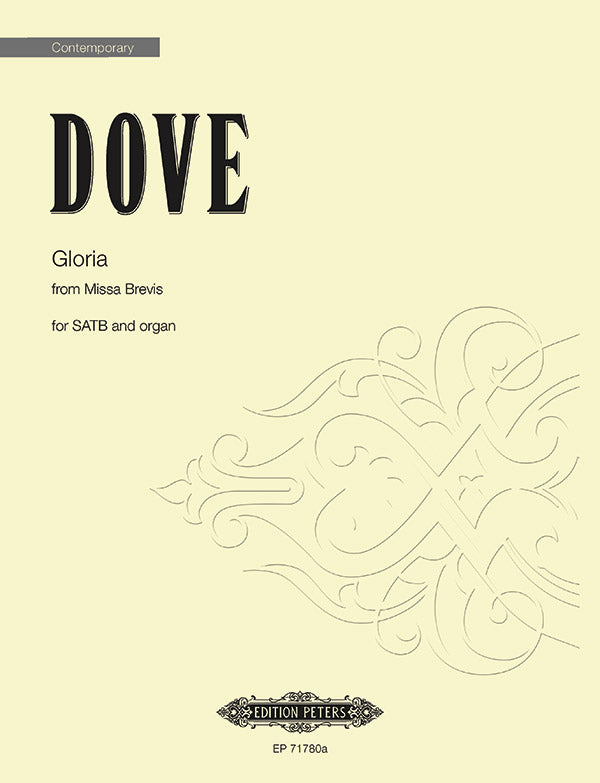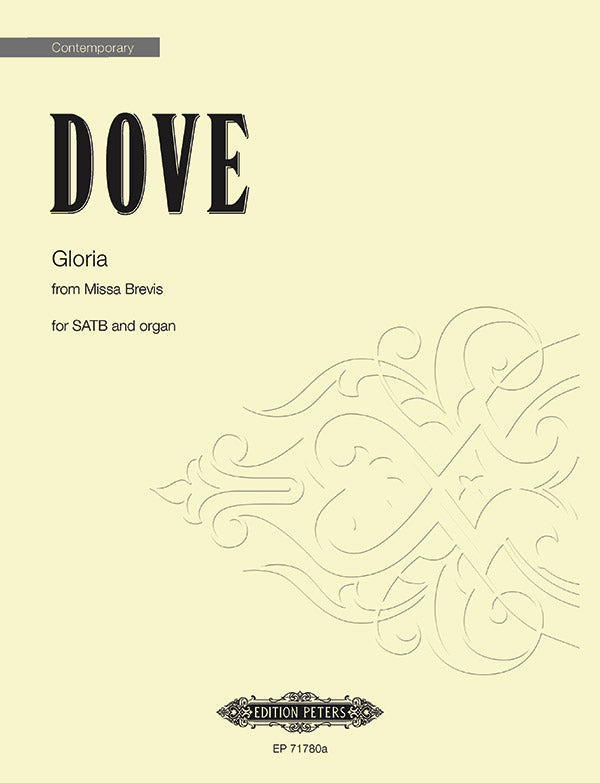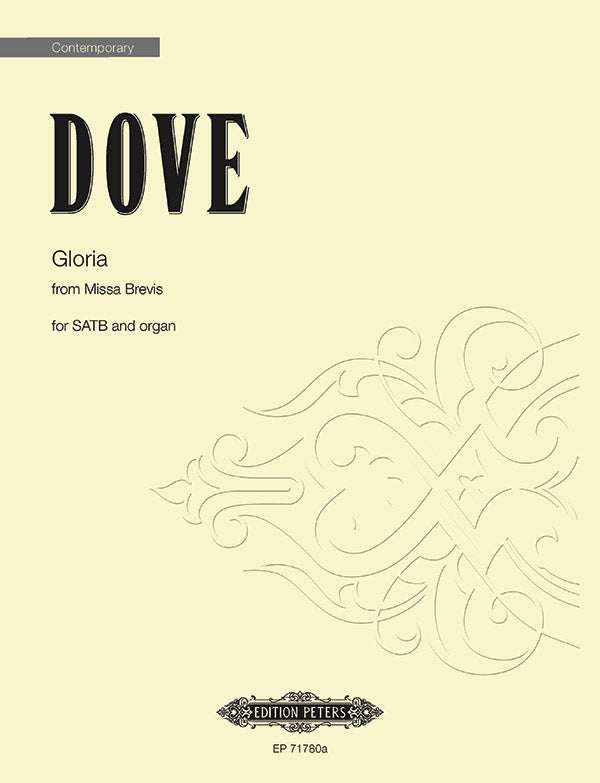Jonathan Dove
Dove: Gloria (from Missa Brevis)
Expected to ship in about a week.
Minimum Order Qty: 5
- Composer: Jonathan Dove (1959-)
- Instrumentation: Organ, SATB Choir
- Work: Missa Brevis
- Work Language: Latin
- ISMN:
- Pages: 20
Description
Dove's 'Missa Brevis' was commissioned by the Cathedral Organists' Association for performance during their conference in Wells on 13 May 2009 and first performed by the choir of Wells Cathedral, directed by Matthew Owens. It has become a modern classic for choirs in a liturgical setting. This edition makes available the 'Gloria' from the mass available as a standalone work.
"Dove's vocal music seems to have a near-magical capacity to combine sensuous delight with great depth and clarity of expression, all without a hint of sentimentality"
(Kate Wakeling, BBC Music Magazine January 2022)
"Jonathan Dove's Missa Brevis, also of 2009 and for SATB voices and organ, is an altogether more extrovert affair. Dove is a highly accomplished writer in just about every genre, including his first love: opera. If a quiet, sombre atmosphere, underpinned by organ pedal drones, pervades the Kyrie and Agnus movements, Dove's theatrical sense of good timing is put to good use in the Gloria and Sanctus; both full of colour and sparkling organ writing (penned for performance at an annual convention of cathedral organists, Dove clearly knows his market!). This is immediate, vibrant music that simply jumps off the page demanding to be sung and played."
(Matthew Greenall, The Singer 31 July 2010)
Publishers use a lot of words to describe what they sell, and we know it can be confusing. We've tried to be as clear as possible to make sure you get exactly what you are looking for. Below are descriptions of the terms that we use to describe the various formats that music often comes in.
Choral Score
A score for vocalists that only contains the vocal lines. The instrumental parts are not there for reference. Generally, cheaper than a vocal score and requires multiple copies for purchase.
Facsimile
Reproductions of the original hand-written scores from the composer.
Full Score
For ensemble music, this indicates that the edition contains all parts on a single system (there are not separate parts for each player). In larger ensembles, this is for the conductor.
Hardcover
Hardbound. Generally either linen-covered or half-leather.
Orchestral Parts
Similar to a wind set, this is a collection of parts. In the case of strings, the numbers listed are the number of copies included, though generally these are available individually (often with minimum quantities required).
Paperback
When publishers offer multiple bindings (e.g. hardcover) or study scores, this is the "standard" version. If you're planning to play the music, this is probably what you want.
Performance / Playing Score
A score of the music containing all parts on one system, intended for players to share. There are not separate parts for each player.
Set of Parts
For ensemble music, this indicates that there are separate individual parts for each player.
Solo Part with Piano Reduction
For solo pieces with orchestra, this is a version that contains a piano reduction of the orchestra parts. For piano pieces, two copies are typically needed for performance.
Study Score
A small (think choral size) copy of the complete score meant for studying, and not playing. They make great add-ons when learning concertos and small chamber works.
Vocal Score
A score prepared for vocalists that includes the piano/organ part or a reduction of the instrumental parts.
Wind Set
For orchestral music, this is a collection of wind and percussion parts. The specific quantities of each instrument are notated.
With Audio
In addition to the printed music, the edition contains recordings of the pieces. This may be an included CD, or access to files on the internet.
With / Without Fingering (Markings)
Some publishers prepare two copies - a pure Urtext edition that includes no fingering (or bowing) suggestions and a lightly edited version that includes a minimal number of editorial markings.




